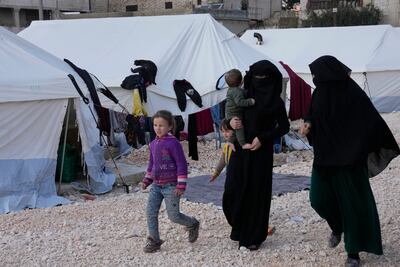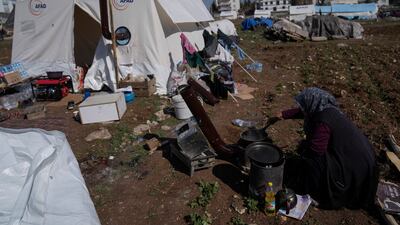Follow the latest news on the earthquake in Turkey and Syria
A million people are believed to be living in temporary shelters after the earthquake in Turkey as fears grow about the spread of disease.
About 80,000 are being treated in hospital, putting a further strain on a healthcare system that has been badly damaged by the disaster, said Hans Kluge, the World Health Organisation's regional director for Europe.
On Tuesday, he described the earthquake that struck Turkey and Syria as the worst natural disaster in the region for more than a century.
WHO charter flights to Turkey and Syria have taken medical kits that will allow healthcare workers to treat about 400,000 people, while Turkey is to distribute vaccines to guard against tetanus and rabies.
"Just over a week since this terrible tragedy, there are growing concerns over emerging health issues linked to the cold weather, hygiene and sanitation, and the spread of infectious diseases," Mr Kluge said.
"Water and sanitation facilities are also hit. We are increasing public health surveillance and have to be ready for communicable disease outbreaks."

The charity Save the Children has said young people are particularly vulnerable to waterborne diseases.
There have been reports of children falling ill in shelters.
"People in the earthquake-affected areas urgently need safe drinking water and latrines," said Marielle Snel, a hygiene and sanitation adviser for the charity.
The death toll from the earthquake passed 35,500 on Tuesday, most of them recorded in Turkey.
About 2,200 have died in rebel-held areas of northern Syria, while the government in Damascus has reported 1,400 deaths in territory under its control.
The UN said two crossing points were opened between Turkey and Syria, easing the diplomatic headache of bringing aid into Syrian territory.
Earthquake in Turkey and Syria - in pictures
Mr Kluge said an initial WHO appeal for $43 million to support its earthquake response was likely to "at least double" as the scale of the disaster becomes clearer.
Some of those affected by the tremor are Syrian refugees in Turkey who have "lost everything again", Mr Kluge said.
"Now is the time for the international community to show the same generosity that Turkey has shown to other nations globally over the years," he said.
The earthquake's "true cost is not known yet. Recovering and healing will take time and a phenomenal effort".
The WHO sent 22 medical teams to support the Turkish health system and treat trauma patients with serious injuries.
Search and rescue teams are still examining the disaster zone eight days after the 7.8-magnitude earthquake, but hopes are fading that more survivors will be found.





























































